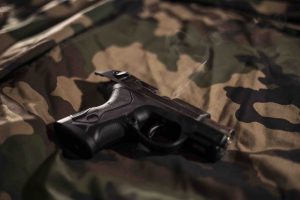 A gun owner’s card (FOID) may be confiscated or seized if one is convicted of a felony or becomes a subject of an order of protection. This is why it is crucial to consult an experienced lawyer if you believe you have a legal case. Following a seizure, you will not only need a reliable defense lawyer on your side, but you will also need someone who understands how to protect your gun possession rights.
A gun owner’s card (FOID) may be confiscated or seized if one is convicted of a felony or becomes a subject of an order of protection. This is why it is crucial to consult an experienced lawyer if you believe you have a legal case. Following a seizure, you will not only need a reliable defense lawyer on your side, but you will also need someone who understands how to protect your gun possession rights.
Police seize firearms from people who fail to follow the law. However, they sometimes face opposition from firearm owners. Currently, gun control advocates are trying to remove firearms from dangerous offenders while avoiding any activity that might offend the rights of a gun owner. This can obviously cause complications between gun control advocates and those who believe in the right to bear arms. Since 1968, it has been a requirement in Illinois to apply a FOID card to own a firearm. Only law enforcement and military members own firearms without FOID cards.
Generally, a FOID card denial occurs if you get convicted of domestic violence, charged with a felony, for those addicted to narcotics, previous patients in a mental health facility in the past five years, mental or intellectually disabled people, or if one is a subject of court restraint order. FOID cards can also be withdrawn if the owner seems to be able to cause harm to others or to him or herself.
After revoking a FOID card from a person, the Illinois State Police department does not actually go to owner’s home to ask for the firearms, (mainly because the agency does not have enough staff to do so), according to state police Master Sgt. Matt Boerwinkle. He also explained that it would be too much to ask of local police. However, some local police units check on invalid FOID card holders, but many do not. He added that the state troopers simply send a revocation notice to the holders and police located in the owner’s area.
According to the law, a firearm owner sends a form to the state police along with documents with a list of his or her firearms. He or she must show that another current FOID holder will be responsible for the guns during the revocation period. The police may not get hold of the gun from a revoked card holder unless the firearm owner refuses to hand in the form. It is an offense to fail to submit the form and force the police to search and seize the firearm. Currently, the authorities say that a situation like that is rare unless the person is stopped for other crimes.
At least 2.1 million people possess a FOID card. The number is believed to have grown by almost 1 million from the year 2010, according to Illinois state police department. In 2016, police got hold of around 11,000 people’s cards but only 4,000 of them were handed in while stating what they did with their firearms. A proposed statute revision would have required the state police to get the guns in such cases, but the bill died in 2016 after the firearm rights groups protested and police claimed insufficient officers to scrutinize at least 50,000 revoked cards in the entire state.
State Senator Julie Morrison is currently hoping to reinstate the proposed bill with the help of police and local leaders. For inquiries or assistance on gun ownership rights, contact David Freidberg Attorney at Law at 312-560-7100.
(image courtesy of Quentin Kemmel)
 Chicago Criminal Lawyer Blog
Chicago Criminal Lawyer Blog


